In the past several weeks characters in multiple television shows faced choices that seem much like the classic Prisoner’s Dilemma [PD]. Because PD and the problem of credible commitment are so very central to our understandings of both international relations and intra-state conflict, pop culture can provide some insights about political violence with merely a glance at the TV. The three shows discussed here are The Walking Dead, Game of Thrones, and Community. Each one played a PD-like situation differently, illustrating both the challenges and opportunities that face countries and sub-state actors.
The basic idea of PD is that two players face a situation where mutual cooperation is beneficial, but both are tempted to cheat on the deal and take advantage of the other player. Here the best possible outcome is when I cheat and my opponent tries to cooperate. The worst outcome is the reverse. The second best outcome is if we both cooperate, and the third best is if both try to cheat. I am not going to cite the piles of social science that ponder PD and its applications. The key here is simply that without outside guarantees, it is often very hard for two players to come to an agreement because of the temptation to cheat and the realization that the other player might cheat.
We do not have to go very far from PV@G to see the applications of PD, as Barbara Walter has argued that external guarantees are needed in civil wars because the players in potential settlements are very much tempted to cheat and fear cheating. In International Relations more broadly, PD is useful for thinking about arms races, trade agreements, and more. Not every situation is a PD, but this one model is useful as it illustrates most clearly why actors in IR or in intra-state conflicts may do what is rational for themselves, but leave everyone worse off.

On television, The Walking Dead’s depiction of PD was perhaps both the most obvious and most deceptive. In that show, two groups of humans struggle to survive in a Zombie-infested post-apocalyptic hellscape. Rick, a former sheriff, leads a band of survivors currently residing in a prison, while the psychopathic Governor leads another group of survivors. For a variety of reasons, there is bad blood between the two. Rick and the Governor meet to bargain over a settlement that would lead to peace between the two non-Zombie communities. The proposed deal involves a division of territory and Rick handing over Michonne, who the Governor hates but also happens to be one of the best fighters Rick has.
Rick seriously considers the situation as PD. Perhaps due to his police training, Rick worries that the Governor might not keep his word. Still, Rick decides at first to follow through. This completely fits with Rick’s history of being a lousy strategist. While giving the Governor Michonne is a very credible signal of a sincere interest on Rick’s part in keeping his word, the Governor does not make any similar kind of commitment.
There is another problem: Rick is playing PD, if poorly, but the Governor does not have the same preferences. Again, in standard PD
exploitation (you cooperate, I don’t) > cooperation (both cooperate) > conflict (both don’t) > sucker (I cooperate, you don’t).
But the Governor prefers conflict to cooperation, so they are really playing different games.
The good news is that Rick is overcome by guilt (his gut) and changes his mind at the last minute. However, the bad news is that he has a principal-agent problem: Merle, one of the newest residents of the prison, decides to take matters into his own hands.
What is the relevance of The Walking Dead’s PD situation for our understanding of political violence? Bargaining in the absence of hierarchy is really hard. If there is no outside authority to enforce an agreement, the temptation to renege and the fear of the other side reneging is often quite enough to stymie any resolution. This we already knew, of course, but the episode reminds us that not everyone is playing the same game. It also reminds us that principal-agent dynamics matter as well, as the elites negotiating the agreement may not be able to control members of their team, their militia, their country. Indeed, one reason why civil wars are harder to end than interstate wars is the challenge of controlling one’s agents. Moreover, this discussion of PD is thus far is solely in terms of what will work or not, rather than what is right nor not. Scholars will sometimes juxtapose the logic of consequences versus the logic of appropriateness. We tend to focus on the former — a situation’s strategic logic — but this logic may be affected by whether actors consider some options to be appropriate, or even imaginable.

This leads us to the second example of PD in Game of Thrones, again a straightforward bargaining situation. Aspiring queen Dany needs to amass an army, and finds herself in a city selling formidable slave fighters — the Unsullied. Dany offers one dragon in exchange for the entire stock of eight thousand Unsullied. The slaveowner agrees to the deal because dragons are this world’s nuclear weapons, and Dany possesses the only three in existence. The slaveowner’s mistake is again two-fold: he does not imagine that Dany would use her new army to kill the slave masters, and he thinks he can control the dragon.
Again, Dany is not really playing PD because there is no way she would prefer cooperation — giving up a dragon (her baby) in exchange for the Unsullied — to conflict or no deal. But Dany makes it appear that this is not the case. Indeed, she castigates her advisers for arguing against the proposed deal, making her fake sincerity seem all that more real. Everybody believes she is playing PD. The slaveowner is not irrational — he is used to making trades, selling slaves for whatever goods buyers have to offer. He even offers to take the prisoners Dany’s Unsullied army will capture and create a new generation of fighters, expecting the PD to be played again and again. Indeed, the basic expectation of PD is that if you play it only once you get conflict. On the other hand, if you know that you will be playing it over and over again — as in a trading relationship — the benefits of extended cooperation make it rational to cooperate during the first turn and from then on as long as both cooperate.
Here is where the logic of appropriateness comes back in two ways. First, using slaves against an owner is apparently taboo, so the slave master does not even imagine this possibility until it is too late. Second, Dany loathes slavery, so any inhibitions about reneging on the deal are washed away by her contempt for the practice. The funny thing is that she at first has to rely on the Unsullied’s acceptance of slavery since her first move is to order them to kill the slave master. So, she does something inappropriate — commanding slaves — with the hope that they are still obeying orders (a principal-agent problem).
This case is instructive for showing how one plays the game of PD depends in part on the options one considers to be appropriate or not. In bargaining one generally does not consider slaughtering the bargaining partner. But in a Game of Thrones, one kills or dies. Or is that a Game of Zombies?

Anyhow, this leaves with one last PD. In a recent episode of Community, the study group faced a quandary: they all need a good grade in History and are accidentally in a situation where the professor, played delightfully by Malcolm McDowell, is tied up in Jeff’s apartment. The professor offers the group a deal: whoever lets him go first gets an A, and the rest will get an F. The difference in this game compared to the others is that the players are all friends who care very much about each other and know that they will be interacting down the road. Despite some very strong temptations to cheat by those who are most grade-hungry — two of the characters were dueling to be Valedictorian — they agree to cooperate. Not only is this decision rational given the long term benefits of cooperation, it would be entirely inappropriate to sell out one’s friends for a grade. Given that the two grade hungriest players are also the ones who have the highest standards for how to behave, the logic of appropriateness hits them the hardest overcoming their short-term desires for grade gains.
Community resolves the game with cooperation because the players are indeed a community. There are no real principal-agent problems to mess things up (I choose to ignore a key character for the sake of simplicity), and the logic of appropriateness reinforces the logic of consequences in this case.
Why does all of this matter for those seeking to understand political violence and its absence? PD helps us get a key question: why people, groups, and states engage in conflict. In PD what is rational for individuals leads to suboptimal outcomes — cooperation is preferred to conflict, but the difficulty of making credible commitments and the temptation to cheat get in the way. But as we are tempted to apply PD here and there, we need to remember some key dynamics that may facilitate cooperation or inhibit it.
First, as two of the three cases here suggest, both sides need to be playing the same game. In many civil wars, the negotiations may include parties that have a genuine preference for war (one category of spoiler), so reassurance, credible commitments, outside guarantees, or other recommended solutions to PD may simply not work. Instead, those seeking peace will either need to alter the preferences and incentives of those who are playing a different game or eliminate them.
Second, the simplification of PD ignores the fact that in most situations those that are doing the bargaining must gain the obedience of those under them. Actors on the ground may not always follow the intent of those calling the shots. This can complicate matters in a variety of ways that we need to take seriously.
Third, we need to take seriously the possibility that players may vary in what they imagine to be legitimate policy options. For some, ethnic cleansing is unimaginable. But for others, it is not. When we think about why there is actually more peace than violence in the world (yes, it is true but we tend to notice the violent situations more), it might be that most situations are iterated — you rarely can wipe out the other side in the first move. But it may also be that people find cooperation to be the appropriate strategy and cheating to be wrong. For instance, the Quebec separatist effort has been almost entirely peaceful. The one time that separatists in Quebec used violence, everyone in the community found it abhorrent and rejected the group. Separatism continues in Quebec, but without violence. So, it may be the case that there is less conflict than we might expect because the future of cooperation outweighs the temptations of today, or it may be the case that for many it is simply inappropriate to exploit the trust of others.
So real lesson is that our students should watch more television: our references to pop culture would make more sense in the classroom. Our students witness multiple examples of prisoner’s dilemma as I have discussed here, as well as the general problem of cooperating in the absence of hierarchy (Lost, Deadwood, and so on). Teasing out how some of the dynamics in these shows reflects the world around them is not only amusing but provide insights into the models we use.

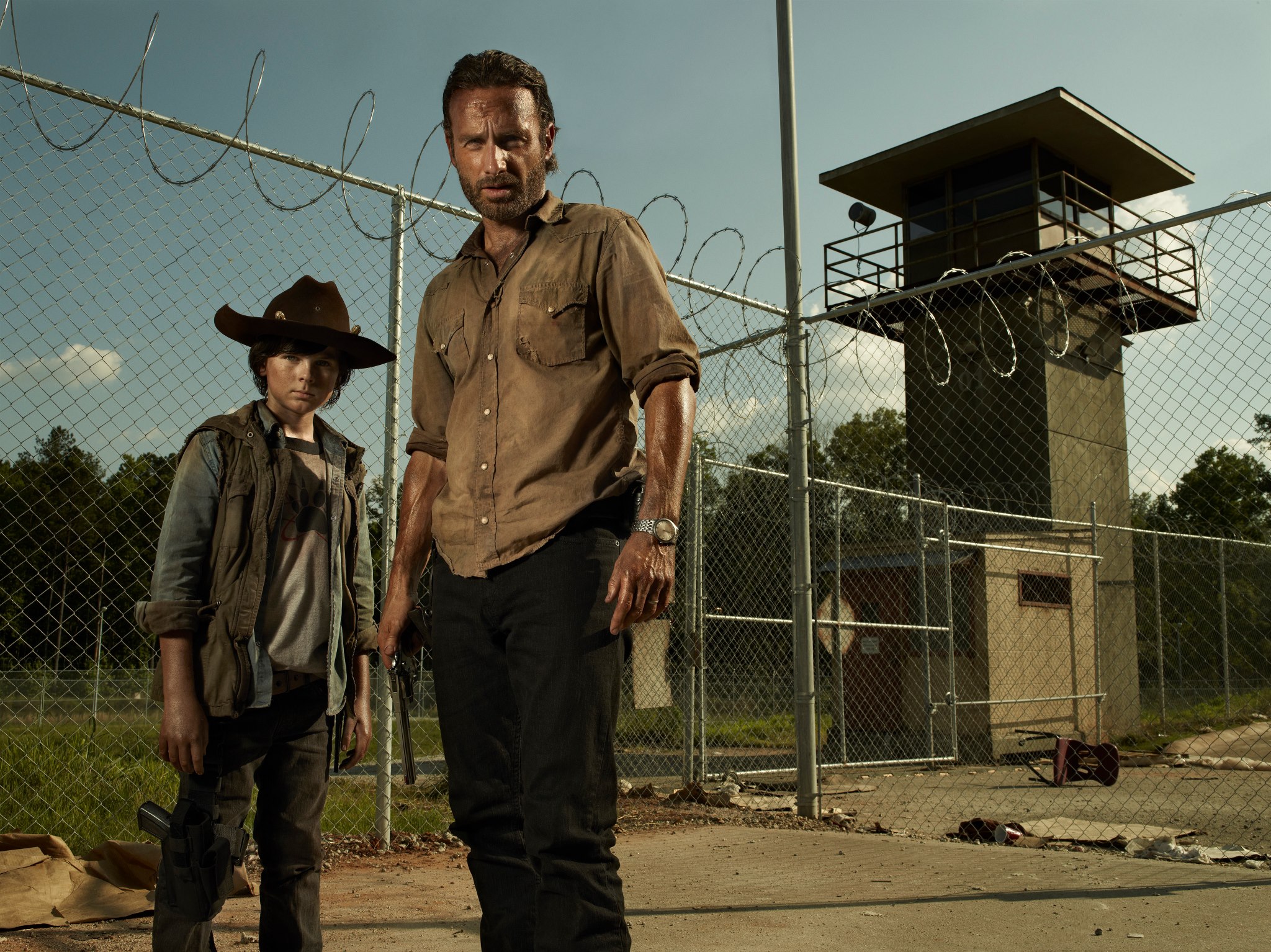
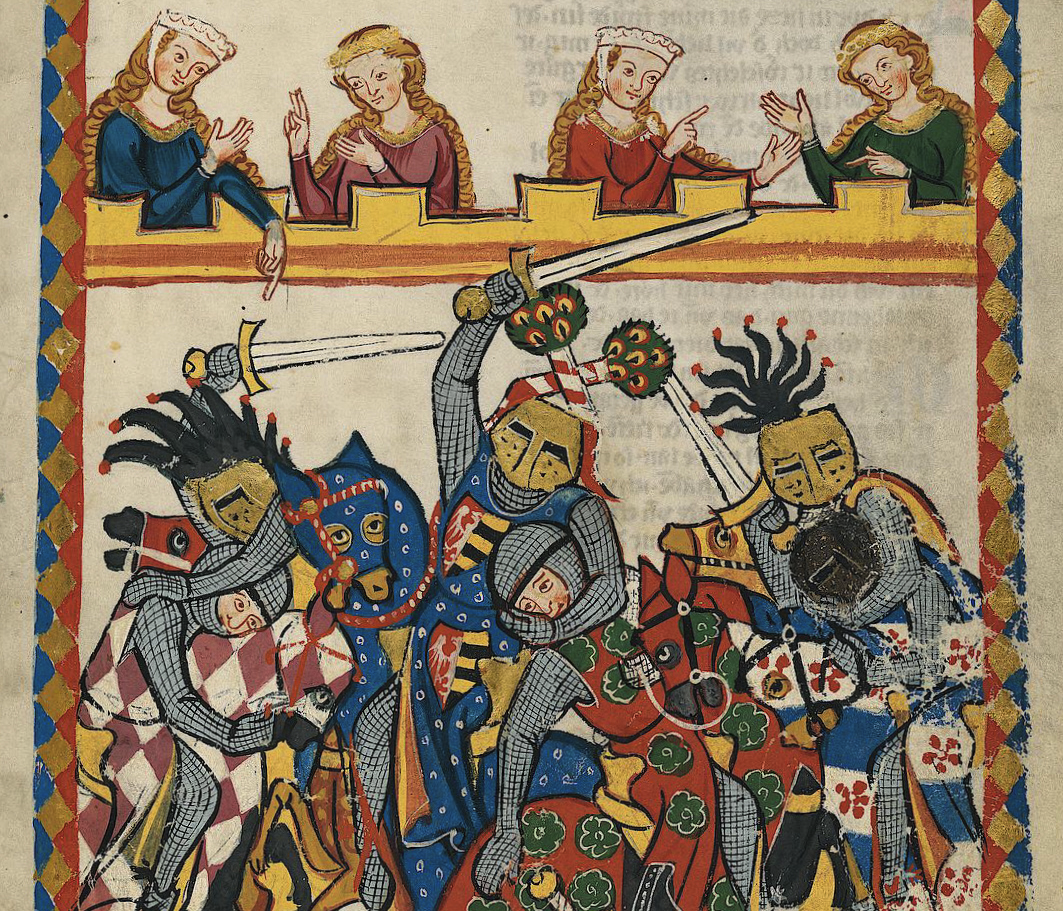
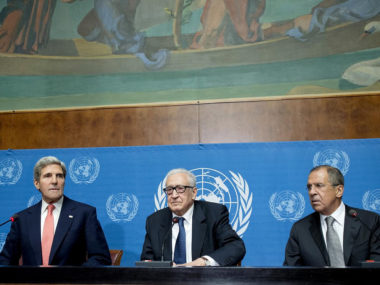

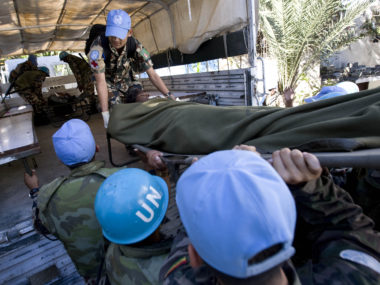

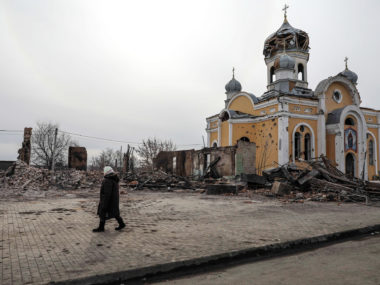
3 comments